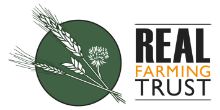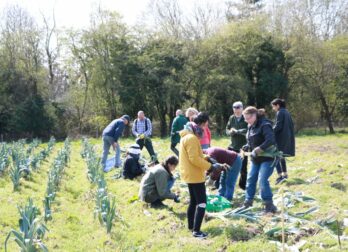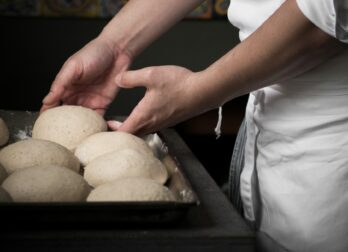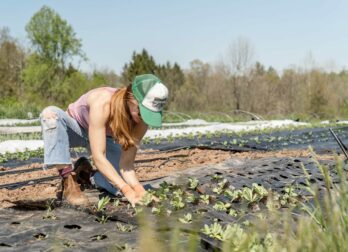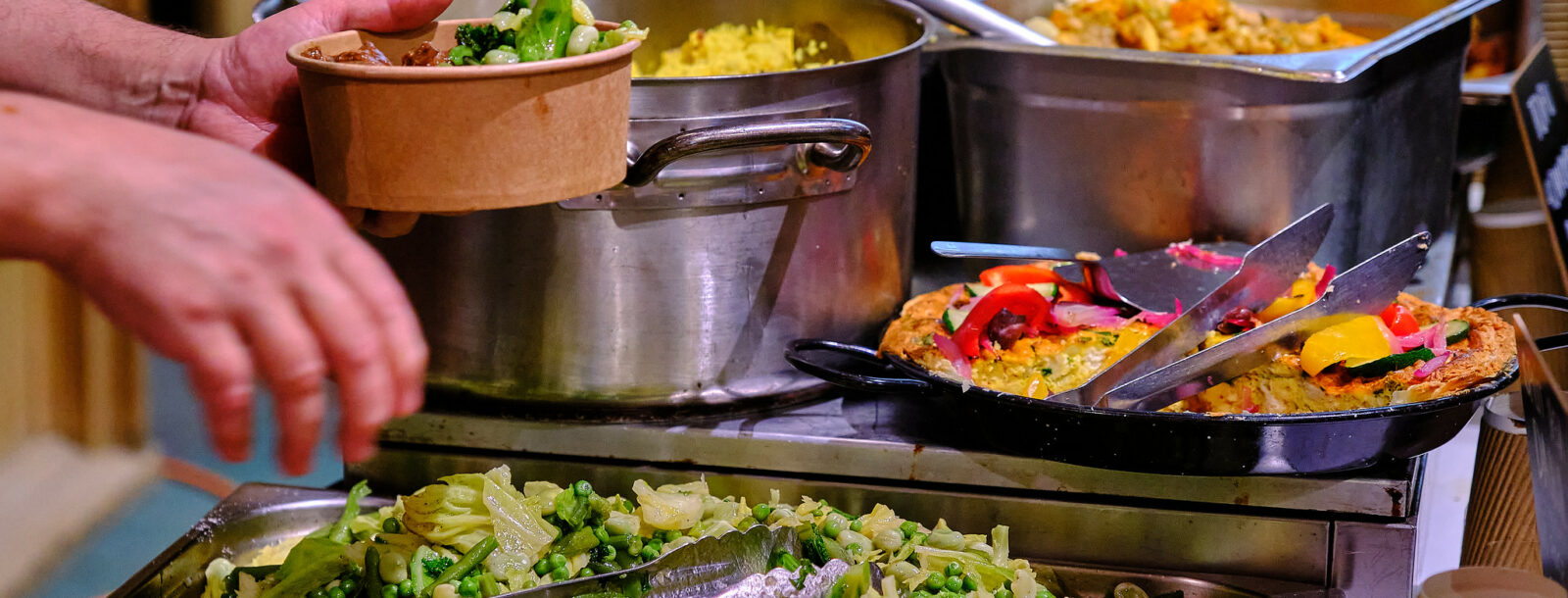
Project to bridge social divides gets go-ahead
By News Team
The Real Farming Trust is excited to announce the launch of a new three-year partnership to build understanding between people growing food in rural areas and people in urban-based social justice projects. The new work is supported by the National Lottery Community Fund and will start in April 2023.
Jade Bashford, Programme Manager, said:
“We know that there is great work underway in agroecology networks, in food bank networks, in community cafe networks and other food and farming sectors – but there are too few relationships across these networks. Through our previous projects we have found that many people have limited experiences of other social groups, and of different urban and rural environments, and that food is a powerful means of bringing people together.
“This project will begin to link refugee groups, farmers, people experiencing food poverty, CSAs, adults with learning disabilities, residents of rural villages and families living in inner cities for meaningful conversation and shared activity. The project will open new doors for people by welcoming them into new situations.”
‘I suppose more vegetables would be good really. We do a lot of dried food. But I have never actually met a farmer. I have seen men in tractors in fields from the motorway but I wouldn’t know where to begin.’ (Food bank volunteer)
‘I went to a city once, when I was at primary school. I would be quite scared to go to the inner city because the kids there have knives but I would go, I’d like to see it. I have met a person who wasn’t white once, she’s quite nice actually, she’s at college but she doesn’t live here.’ (Rural 18-year-old)
‘It’s amazing on the farm here. I have never seen a pig before, it’s so big! I’d like to bring some of the other mums with their kids because they are mostly in the flats. But what if the children run away in all this space? We need to get to know the farm people and talk about how to be safe here. I have never spoken to a farmer before.’ (Refugee mum)
How will it work?
The Real Farming Trust will bring together pairs of organisations to work in ‘twins’. There will be eight partners in total: four twins in different parts of the country. Each twin will be made up of one urban and one rural group which are geographically close but socially isolated from each other. All of the partners are already working with food and in each case, one is a social justice organisation such as a food bank or refugee group.
In each pairing, the members will meet, talk about their lives and come up with shared activities and projects. They will visit and work with people from their twinned organisation, and experience the unfamiliar environment.
Who are the partners?
In Belfast, the NOW Group is a social enterprise that supports adults with learning difficulties. They are interested in employment training at their partner project, Jubilee Farm. NOW operate cafes in the city, staffed by their members, which can begin to take Jubilee pork. Farm members will begin a conversation about community activities in the city.
In Swansea, the Centre for African Entrepreneurship supports refugees and asylum seekers into work and business. They run a food bank and are interested in engaging people in environmental action. They can see opportunities for new business experiences at their twin project, Cae Tan CSA farm. The farm wants to make new relationships in the city and is seeking outreach for their rural project.
Truro Food Bank supports people with emergency groceries. They are finding that increasing numbers of people need ongoing support and would like opportunities for therapeutic group experiences in nature. Their twin, Soul Farm, would like to welcome more farm volunteers and would like to use community kitchens in the town to learn about new ways to cook their vegetables with other people.
In Bristol, the Somali Kitchen works in inner city areas, especially with their network of mothers. They would like the children to experience nature and space but most of the people in the group rarely ever leave the city. They hope to begin with some picnics on the farm. Their twin, Stroud CSA, is keen to increase diversity in their farm community, which has tended to attract like-minded people. They are interested in coming into Bristol to learn about cooking Somali feasts using farm vegetables.
Jade continued:
“All of these conversations are just at the beginning. We will allow plenty of time for member groups to meet, explore, disagree, laugh, make mistakes, be surprised and understand as they plan and then run their shared activities.”

Photo, top: Hugh Warwick
